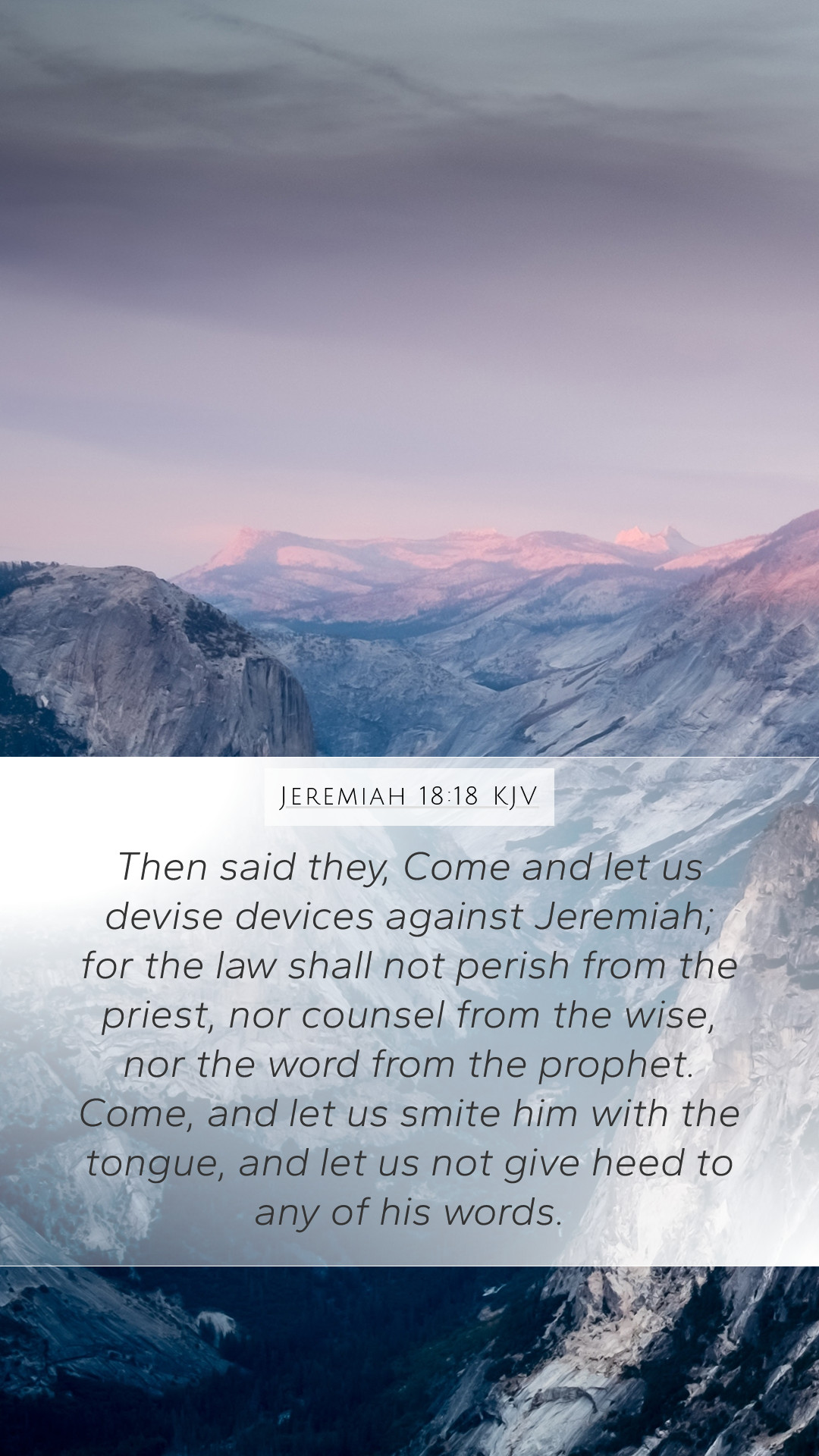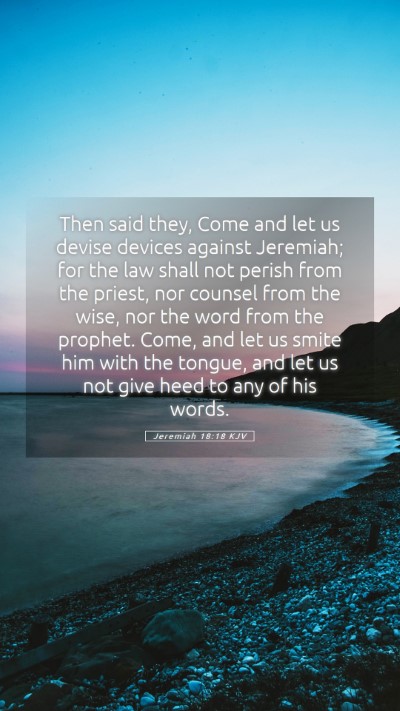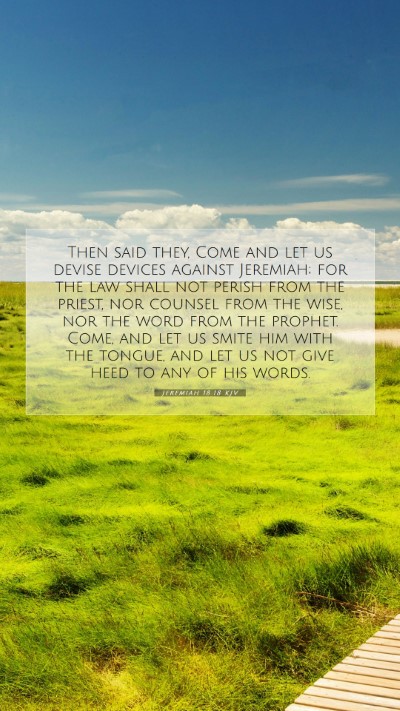Understanding Jeremiah 18:18
Jeremiah 18:18 reads: "Then they said, Come, and let us devise devices against Jeremiah; for the law shall not perish from the priest, nor counsel from the wise, nor the word from the prophet. Come, and let us smite him with the tongue, and let us not give heed to any of his words." This verse captures the essence of resistance against the prophetic message and serves as a critical reflection on the challenges faced by prophets throughout biblical history.
Bible Verse Meanings
This verse talks about a conspiracy against Jeremiah. It reflects the prevalent attitude of the people who reject prophetic revelations and do not heed God’s warnings. The intent to "devise devices" against Jeremiah indicates how deeply the individuals are entrenched in their defiance of God’s messages.
Insights from Public Domain Commentaries
-
Matthew Henry's Commentary:
Henry elaborates on the hostility faced by Jeremiah, emphasizing that the people are driven by their desire to silence the truth he speaks. The attempt to "smit him with the tongue" indicates that they aim to undermine Jeremiah's authority and authenticity as a prophet.
-
Albert Barnes' Notes:
Barnes posits that the leaders are concerned about the loss of their societal influence and authority if the people start listening to Jeremiah. The assertion that "the law shall not perish from the priest" reflects the leaders’ reliance on traditional roles and systems rather than on God’s guidance.
-
Adam Clarke's Commentary:
Clarke suggests that the threats against Jeremiah are symbolic of the broader struggle between divine truth and human stubbornness. He indicates that this behavior is not unique to Jeremiah but can be seen throughout Israel’s history, especially when prophets called people back to faithfulness.
Bible Verse Interpretations
This verse can be seen as a profound commentary on the nature of prophetic ministry. It portrays the reality that prophets often face opposition and hostility, especially when delivering messages that challenge the status quo or call for repentance. Jeremiah, like many prophets before him, becomes a target for those unwilling to confront their sins.
Historical Context
Understanding Jeremiah 18:18 requires a grasp of the historical context of Jeremiah's ministry during a tumultuous time in Jerusalem's history. It was a period marked by idolatry, social injustice, and a general rejection of prophetic warnings. Jeremiah’s role was to call the nation back to covenant faithfulness, which naturally invited resistance from those who preferred complacency and corruption.
Cross References
- Jeremiah 1:19 - "And they shall fight against thee; but they shall not prevail against thee; for I am with thee, saith the Lord, to deliver thee."
- Micah 2:6 - "Prophesy ye not, say they to them that prophesy: they shall not prophesy to them that they shall not take shame."
- Ezekiel 2:3-7 - "And he said unto me, son of man, I send thee to the children of Israel, to a rebellious nation that hath rebelled against me..."
Application of the Verse
For modern believers, Jeremiah 18:18 serves as a reminder of the challenges encountered when standing for truth and righteousness. It prompts individuals to reflect on whether they listen to God’s voice through often unpopular teachings and challenges them not to shy away from speaking the truth out of fear of opposition.
Bible Study Insights
For those engaged in bible study groups or seeking online bible study resources, exploring this verse can deepen understanding of the nature of spiritual conflict and the importance of integrity in prophetic witness. It encourages the examination of one’s own responses to divine challenges in everyday life.
Conclusion
In summary, Jeremiah 18:18 highlights the conflict between divine truth and human defiance. Understanding this verse provides valuable insights into the trials faced by God's messengers and the call for believers to remain steadfast in faith against adversities posed by societal pressures.


